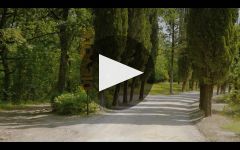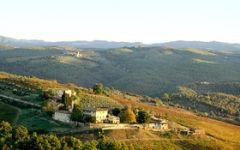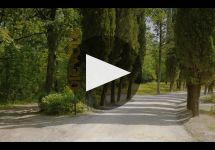Dievole Novecento Chianti Classico Riserva 2020
-
James
Suckling - Vinous
-
Robert
Parker -
Wine
Spectator



Product Details
Your Rating
Somm Note
Winemaker Notes
Intense ruby red with garnet highlights and a bouquet of ripe red fruit and spiced notes. Full-bodied and balanced wine with elegant and pleasant tannins. Good acidity and distinct minerality are not lacking. The finish is persistent and elegant.
Blend: 95% Sangiovese, 5% Canaiolo & Colorino
Professional Ratings
-
James Suckling
This is red-fruited with ground cloves, young hazelnuts, cedar and crushed rocks. Medium- to full-bodied with slightly chewy and chalky tannins. Compact and tight yet with vivid and fresh fruit underneath. From organically grown grapes. Better after 2025.
-
Vinous
The 2020 Chianti Classico Riserva Novecento is a selection taken from the estate's highest-elevation vineyards. Bright acids and beams of supporting tannin shape this super-expressive Riserva. Black cherry, gravel, spice, crushed rocks and lavender open in the glass. I would give this a year or two to soften. It's a fine effort from Dievole.
-
Robert Parker's Wine Advocate
The organic 2020 Chianti Classico Riserva Novecento is 95% Sangiovese with tiny parts of Canaiolo and Colorino in the blend. Fermentation is in cement tulip-shaped vessels, and the wine ages in large French oak casks for 24 months. Winemaking is impeccable at Dievole, and this Riserva produces silky elegance and a softly streamlined style that is delightful to drink. This inherently food-friendly red offers bright cherry, blood orange and blue flower perfumes. Production is an ample 60,000 bottles, and you get a good deal with this bottle.
-
Wine Spectator
A lively red, with cherry, raspberry, earth and eucalyptus flavors fused to a steely frame. After a few moments of aeration, the fruit comes to the fore and this turns more elegant. Shows excellent length. Sangiovese, Canaiolo and Colorino. Best from 2025 through 2043.
Other Vintages
2018-
Wine
Spectator -
James
Suckling
-
Robert
Parker
-
Robert
Parker -
James
Suckling
-
Wine
Spectator -
James
Suckling
-
Robert
Parker
-
Robert
Parker
-
Wine
Spectator
-
Wine
Enthusiast



Dievole. The enchanted valley. At Dievole, good wine is the right answer to the right question, whether for vineyard or wine cellar. A good wine is the perfect union of man and nature. Dievole is an enchanted valley and we are committed to finding the right people. All evaluations, from selecting mother vine stock and clones to vintage planning and innovation in vineyards and wine cellar, are determined by one single objective: uplifting standards in the hope of creating a good wine through character and quality.
Aspiring to perfection is second nature to us Dievole viticulture dates back to the 11th century. The first step taken to cultivate this genetic legacy was to revisit the past found in the historical memory of the farming families. New masters of wine-growing were brought in to counter environmental uniformity and monotony. Its particolar type of terroir includes such ancient classics as Barsaglina, Aleatico, Foglia Tonda, Ciliegiolo, Prugnolo Gentile, Mammolo and Saragiolo. It also covers contemporary classics such as Canaiolo a Raspo Rosso, Malvasia Nera, Syrah, Petit Verdot and the various Sangiovese clones.

Among Italy's elite red grape varieties, Sangiovese has the perfect intersection of bright red fruit and savory earthiness and is responsible for the best red wines of Tuscany. While it is best known as the chief component of Chianti, it is also the main grape in Vino Nobile di Montepulciano and reaches the height of its power and intensity in the complex, long-lived Brunello di Montalcino. Somm Secret—Sangiovese doubles under the alias, Nielluccio, on the French island of Corsica where it produces distinctly floral and refreshing reds and rosés.

One of the first wine regions anywhere to be officially recognized and delimited, Chianti Classico is today what was originally defined simply as Chianti. Already identified by the early 18th century as a superior zone, the official name of Chianti was proclaimed upon the area surrounding the townships of Castellina, Radda and Gaiole, just north of Siena, by Cosimo III, Grand Duke of Tuscany in an official decree in 1716.
However, by the 1930s the Italian government had appended this historic zone with additonal land in order to capitalize on the Chianti name. It wasn’t until 1996 that Chianti Classico became autonomous once again when the government granted a separate DOCG (Denominazione di Origine Controllata e Garantita) to its borders. Ever since, Chianti Classico considers itself no longer a subzone of Chianti.
Many Classicos are today made of 100% Sangiovese but can include up to 20% of other approved varieties grown within the Classico borders. The best Classicos will have a bright acidity, supple tannins and be full-bodied with plenty of ripe fruit (plums, black cherry, blackberry). Also common among the best Classicos are expressive notes of cedar, dried herbs, fennel, balsamic or tobacco.
